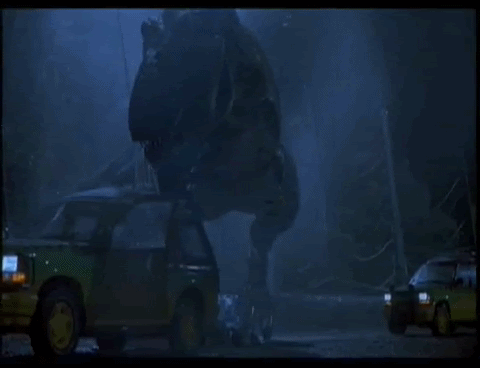Post by caseagainstfaith on Nov 1, 2011 15:51:15 GMT -5
SOPA is the latest--and perhaps the most brazen--effort in a string of attempts by the MPAA and RIAA to bend the Internet to their corporate will and undermine all kinds of consumer rights. It's a breathtaking piece of work that would give Hollywood and private companies free reign to censor, remove, or prevent the creation of large chunks of the Web. But the industry is only offering such nightmarish law because our government has been letting them get away with Internet murder for years now.
SOPA, also called the "E-PARASITE Act" (I mean, really?) is the darker version of the already dark Protect IP Act, which has been dogged by free speech, technical, and even constitutional concerns. But far from offering a reasonable alternative to Protect IP, the House delivered SOPA, which would let content owners bypass cops, courts, and any semblance of due process, and "disappear" entire Web domains like some kind of privatized secret police force.
The legislation is shockingly bold. But again, the industry has every reason to believe it's got government on its side--because it does. I truly can't believe how long the Internet community has been fighting--and losing--against the creeping tide of intellectual property crackdown. I wrote a brief history of the wars back in March 2010, when the MPAA and RIAA submitted a wish list to the Office of Intellectual Property Enforcement asking for a wish list of government enforcement that would have created a fully formed copyright police state, featuring government-mandated software that searches for and automatically deletes "infringing" content, warrantless search and seizure, border searches, and much more.
In fact, I've written more words on the topic than I care to count, since at least 2005, and yet the laws keep getting more draconian, the claims bolder, and the laws broader and potentially more damaging. My hope, if I have any left, is that SOPA is so appalling, and there's so much opposition to it, that we can finally see these attempts for the flagrantly ridiculous overreaches that they are, and restore some sanity to the process.
SOPA would allow rights-holders to get court orders to take down Web sites or blacklist entire domains based on accusations of infringement. The "infringements" themselves can constitute a single link on a single page of a site, or even an accusation that the site is taking steps to "avoid confirming a high probability" of infringement. Let me translate: if someone, anyone, who holds a copyright or trademark on anything, thinks you're deliberately not doing anything about something they consider infringement, they can get your site taken offline and there's virtually nothing you can do to stop them. What?
There's more, and the "more" is even more insidious. The bill would also allow a rights-holder to send an infringement notice to an ad network like Google or a payment processor like Mastercard or Visa. In that case, with zero legal proof of infringement, the ad networks or payment processors would have five days to stop doing business with the accused site--an accuser can kill the alleged infringer's business, with, again, no proof or legal recourse.
SOPA, also called the "E-PARASITE Act" (I mean, really?) is the darker version of the already dark Protect IP Act, which has been dogged by free speech, technical, and even constitutional concerns. But far from offering a reasonable alternative to Protect IP, the House delivered SOPA, which would let content owners bypass cops, courts, and any semblance of due process, and "disappear" entire Web domains like some kind of privatized secret police force.
The legislation is shockingly bold. But again, the industry has every reason to believe it's got government on its side--because it does. I truly can't believe how long the Internet community has been fighting--and losing--against the creeping tide of intellectual property crackdown. I wrote a brief history of the wars back in March 2010, when the MPAA and RIAA submitted a wish list to the Office of Intellectual Property Enforcement asking for a wish list of government enforcement that would have created a fully formed copyright police state, featuring government-mandated software that searches for and automatically deletes "infringing" content, warrantless search and seizure, border searches, and much more.
In fact, I've written more words on the topic than I care to count, since at least 2005, and yet the laws keep getting more draconian, the claims bolder, and the laws broader and potentially more damaging. My hope, if I have any left, is that SOPA is so appalling, and there's so much opposition to it, that we can finally see these attempts for the flagrantly ridiculous overreaches that they are, and restore some sanity to the process.
SOPA would allow rights-holders to get court orders to take down Web sites or blacklist entire domains based on accusations of infringement. The "infringements" themselves can constitute a single link on a single page of a site, or even an accusation that the site is taking steps to "avoid confirming a high probability" of infringement. Let me translate: if someone, anyone, who holds a copyright or trademark on anything, thinks you're deliberately not doing anything about something they consider infringement, they can get your site taken offline and there's virtually nothing you can do to stop them. What?
There's more, and the "more" is even more insidious. The bill would also allow a rights-holder to send an infringement notice to an ad network like Google or a payment processor like Mastercard or Visa. In that case, with zero legal proof of infringement, the ad networks or payment processors would have five days to stop doing business with the accused site--an accuser can kill the alleged infringer's business, with, again, no proof or legal recourse.
source - news.cnet.com/8301-31322_3-20126756-256/u.s-government-also-a-villain-in-piracy-act-story/?tag=cnetRiver
Can we stop taking these morons seriously yet? This is about as stupid as the teabaggers trying to push through their pointless legislation that was guaranteed to fail.


